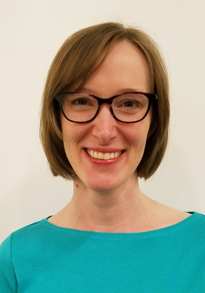Kimberly C. Arthur, MPH
Biography
Kimberly Arthur, MPH, collaborates with community leaders, community members, and health care professionals on efforts to promote health equity and improve pediatric quality of care. Guided by community-based participatory research principles, she often uses a co-design approach in which community and/or health care partners participate as full team members throughout the process of designing programs or interventions.
At Kaiser Permanente Washington Health Research Institute (KPWHRI), she is a collaborator on the ENSPIRE (Engaging Staff to Improve COVID-19 Vaccination Response at Long-Term Care Communities) study, which involves working with long-term care staff to design materials to promote the COVID-19 booster. She is also conducting qualitative research for the PRIMES-C (Pediatric Respiratory Illness Measurement System — Community) study, which aims to improve care for asthma and bronchiolitis at community hospitals around the country.
Prior to joining KPWHRI, Kim was a research scientist at Seattle Children’s Research Institute and Odessa Brown Children’s Clinic, where she led a team of parents of children with chronic health conditions and disabilities who adapted an evidence-based mindfulness intervention for delivery by peer facilitators in English and Spanish. The team sought to share parent-led mindfulness and compassion practices to promote the well-being of youth, families, and communities that are marginalized and to build collective capacity to promote social justice.
At Seattle Children’s Research Institute, she also participated in the Center of Excellence on Quality Measures for Children with Complex Needs, contributing to the development and validation of quality measures for children with medical and social complexity. She contributed to formative research to design a pediatric patient navigation program and led a study examining the experiences of English- and Spanish-speaking parents in the emergency department.
Kim completed her Master of Public Health at the University of Washington in 2011 and is currently pursuing her PhD in anthropology at the University of Washington.
Research interests and experience
-
Health Equity
-
Healthy Communities
-
Social Determinants of Health
-
Complementary and Integrative Health
-
Dissemination and Implementation Research
Recent Publications
Arthur KC, Lucenko BA, Sharkova IV, Xing J, Mangione-Smith R. Using state administrative data to identify social complexity risk factors for children. Ann Fam Med. 2018 Jan;16(1):62-69. doi: 10.1370/afm.2134. PubMed
Foster CC, Jacob-Files E, Arthur KC, Hillman SA, Edwards TC, Mangione-Smith R. Provider perspectives of high-quality pediatric hospital-to-home transitions for children and youth with chronic disease. Hosp Pediatr. 2017 Nov;7(11):649-659. doi: 10.1542/hpeds.2017-0031. PubMed
Schrager SM, Arthur KC, Nelson J, Edwards AR, Murphy JM, Mangione-Smith R, Chen AY. Development and validation of a method to identify children with social complexity risk factors. Pediatrics. 2016 Sep;138(3):e20153787. doi: 10.1542/peds.2015-3787. Epub 2016 Aug 11. PubMed
Arthur, KC, Mangione-Smith R, Meischke H, Zhou C, Strelitz B, Acosta Garcia M, Brown JC. Impact of English proficiency on care experiences in a pediatric emergency department. Acad Pediatr. 2015 Mar-Apr;15(2):218-24. doi: 10.1016/j.acap.2014.06.019. Epub 2014 Sep 4. PubMed
- ← Previous
- 1
- 2 (current)
- Next →
New funding

KPWHRI to launch study on vaccine hesitancy among long-term care workers
The Patient-Centered Outcomes Research Institute plans to award $4.75 million to compare ways to raise COVID-19 immunization rates.
Pediatric research

Improving child health and care with quality measures
KPWHRI Executive Director Rita Mangione-Smith, MD, MPH, talks about her research to advance pediatric care



